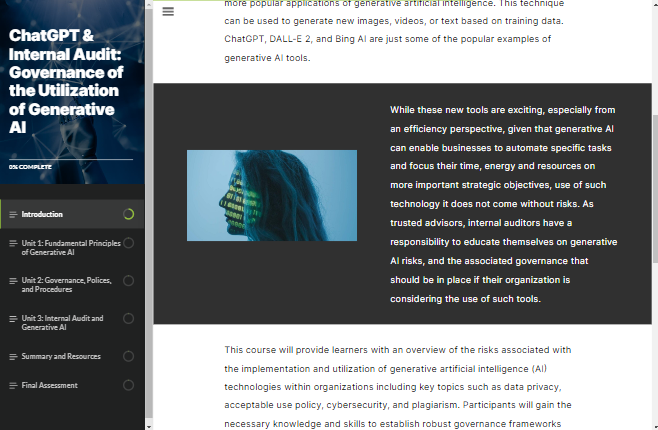Format: On-demand
ChatGPT launched as a prototype on November 30, 2022, and garnered attention for its detailed responses and articulate answers across many domains of knowledge. However ChatGPT is not the first generative AI, nor will it likely be the last.
Over two billion dollars have already been invested in generative artificial intelligence, a rise of 425 percent since 2020. Machine learning is one of the more popular applications of generative artificial intelligence. This technique can be used to generate new images, videos, or text based on training data. ChatGPT, DALL-E 2, and Bing AI are just some of the popular examples of generative AI tools.
While these new tools are exciting, especially from an efficiency perspective, given that generative AI can enable businesses to automate specific tasks and focus their time, energy and resources on more important strategic objectives, use of such technology it does not come without risks. As trusted advisors, internal auditors have a responsibility to educate themselves on generative AI risks, and the associated governance that should be in place if their organization is considering the use of such tools.
This course will provide learners with an overview of the risks associated with the implementation and utilization of generative artificial intelligence (AI) technologies within organizations including key topics such as data privacy, acceptable use policy, cybersecurity, and plagiarism. Participants will gain the necessary knowledge and skills to establish robust governance frameworks and effectively mitigate risks related to generative AI implementation.
